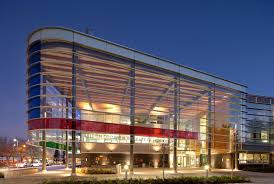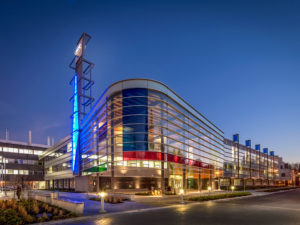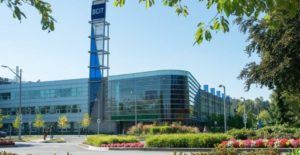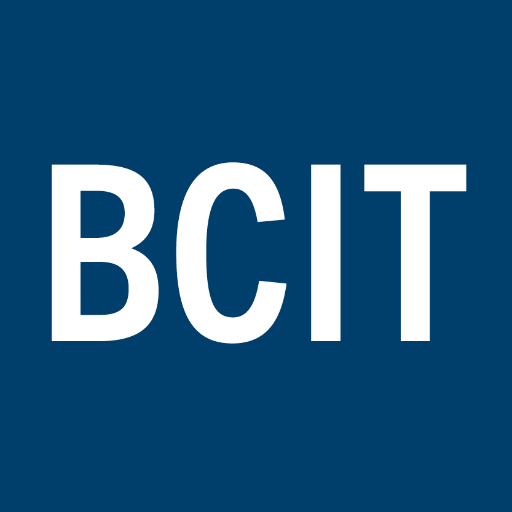BCIT

BCIT
Location: Burnaby, British Columbia, Canada
Foundation Year: 1964
Type: Public
Tuition Fees: 6,140 CAD to 10,240 CAD per year
The British Columbia Institute of Technology (BCIT) was founded in 1964 as a public polytechnic institute. Five of its campuses are situated in the Metro Vancouver region, with the main one located in Burnaby. Approximately 50,000 full-time and part-time students choose to study here every year. BCIT's Civil Engineering and Electric Engineering Bachelor programs are accredited by the Canadian Engineering Accreditation Board.
The BCIT philosophy focuses on the practical aspects of studies. The Institute is proud to offer its students lots of locations for practice: radio and television studios, automated manufacturing robotics lab, the Technology Centre, and the Marine Engine Room Simulator. Students can also work with the Thermal Power Plant Simulator, interactive fire simulation theatre, fully operational pulp mill, and the Telus Call Centre of Excellence.
The BCIT community is constantly working to drive the institution towards its aim - a quality education that points graduates to meaningful careers. The 2019–2022 Strategic Plan of the Institute focuses on the development of a people-focused organization, future-proof applied education, and globally relevant connections.
BCIT students are work-ready from the day they graduate, the median hourly wage is $32 for apprenticeship completers and $22 for graduates of certificate and diploma programs. According to BCIT Graduates Annual Report, the median annual salary is $65,000 for graduates of degree programs.

The British Columbia Institute of Technology is a respected research institution, that has partnerships with national and international institutions, organizations, and industrial partners. The Centre for Applied Research and Innovation has 80,000 square feet of laboratory space, 3 dedicated research groups, 25 research labs with specialized equipment, more than 50 collaborative projects with industry groups, and more than 1,000 applied research projects with faculty and students. The institution receives $4 million in research grants annually.
Approximately 5,700 international students from 120 countries of the world attended BCIT annually. The Institute also offers its international diploma programs through more than 20 partner institutions in South Korea, China, Brazil, Chile, and Vietnam. BCIT is proud of its 180 agreements with organizations worldwide for student and faculty mobility and industry training initiatives.
The British Columbia Institute of Technology has six schools that offer full-time and part-time studies in a wide range of courses. The School of Business + Media is one of the largest in Western Canada, providing more than 30 full-time and 90 part-time programs. Highly specific programs prepare students for successful careers in General Insurance and Risk Management, Business Analytics and Business Administration, Digital Arts, and Broadcast and Media Communications.
The School of Computing and Academic Studies offers students a wide range of courses and equips them with practical skills. Over 30 different applied programs, well-recognized credentials, and a reputation for job-ready graduates make the School very popular among the applicants. The study program includes courses in a variety of subjects starting from Chemistry to Communications, English language support or academic upgrading is also an option. Forensic Science and Technology program attracts applicants who want to become specialists in the fields of Cybersecurity and Digital Forensics.
The School of Construction and The Environment is dedicated to the creation of a sustainable future. BCIT Trades programs train students in the prerequisite skills for in-demand construction careers, from carpentry to metal fabrication and plumbing and advanced courses teach them core construction principles - to sustain the natural environment.
The School of Energy has 45 hands-on programs to offer. It`s graduates work in the technical industrial sector as electrical, chemical and mechanical engineers, industrial tradespeople, and technical writers.
BCIT School of Health and Sciences provides 32 programs, ranging from radiation therapy and prosthetics and orthotics to specialty nursing. Students learn more about the health industry through BCIT preventative medicine programs in Food Technology, Environment Health, and Occupational Health and Safety.
The School of Transportation is the only post-secondary institution in North America that delivers globally recognized accreditation in transportation by air, sea, road, and rail. The school boasts a fleet of 20 aircraft, certified industrial railway, and realistic simulators for marine bridge and engine room scenarios. Commercial pilot programs offer students the fastest route to a diploma and a commercial pilot’s license.
Student research activities are seen as a key component of the BCIT educational approach. Professors focus on developing student competencies in research activities, sourcing and assessing potential research projects, conducting research activities in an ethical manner, working collaboratively with faculty, and presenting the results of research in a professional manner.

All admission requirements at the British Columbia Technical Institute are program-specific. English is the language of instruction, so students need to prove their English proficiency. Application with midterm grades and Transfer Credit programs are available.
The British Columbia Institute of Technology on-campus housing is located on the main Camus in Burnaby. Sports field and campus recreation facilities are situated next to it. In partnership with Off-Campus Housing 101, the University offers comprehensive listings of off-campus accommodation.
The Safety, Security, and Emergency Management department works with all BCIT academic programs. It guarantees a safe, secure, and disaster-resilient environment. BCIT also has a Recreation Services team that promotes, encourages, and enables the practice of physical well being in the community. Recreation is seen as an integral part of campus life.
Tuition Fees vary depending on a chosen program, but the University guarantees that its world-class education comes at a reasonable price. The average estimated tuition fees are 7,500 CAD per year for Full-time degree programs, Full-time diploma programs are 6,140 CAD to 10,240 CAD per year. Tuition Fees for Full-time certificate programs are 3,840 CAD to 17,950 CAD per year. Apprenticeship and trade programs are 152 CAD per week.
Regards,
International Experience Club

